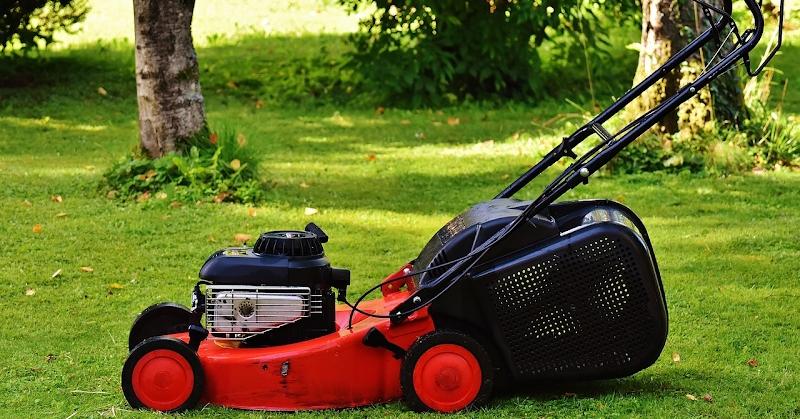Keeping your lawn mower in top shape is essential for maintaining a beautiful and healthy lawn. Whether you prefer to do the maintenance yourself or hire someone to help, regular upkeep is crucial to ensure that your mower performs at its best.
In this guide, we will provide you with all the tips and tricks you need to properly maintain your lawn mower.
Understanding the Importance of Regular Mower Maintenance
Regular maintenance is crucial for keeping your lawn mower running smoothly and ensuring its longevity. It improves the engine’s efficiency, leading to better fuel efficiency and long-term cost savings.
Additionally, regular maintenance helps identify and address small problems before they become costly issues.
Maintenance also plays a vital role in blade sharpness, resulting in a cleaner cut for healthier grass. By regularly sharpening the blades, you can maintain the pristine appearance of your lawn.
To enjoy a beautiful and well-maintained lawn without unexpected breakdowns, make sure to schedule regular mower maintenance.
Optimal Times for Performing Lawn Mower Maintenance
When should you perform lawn mower maintenance? According to experts, the best times to do so are at the beginning and end of the mowing season.
At the start of the season, before your first mow, it’s crucial to prepare your mower for the workload ahead. This includes changing the engine oil, adding a fuel stabilizer, replacing the spark plug, and cleaning or replacing the air filter. It’s also important to sharpen and balance the blades for a clean and precise cut.
At the end of the season, when you’re ready to put your mower away, routine maintenance and winterizing are essential. This involves draining the fuel or adding a stabilizer, cleaning the mower, and fogging the engine to prevent corrosion.
Your Annual Lawn Mower Maintenance Checklist
Here are some important tasks to include in your annual maintenance checklist.
- Make sure to change the engine oil. This helps to keep the engine properly lubricated and prevents any damage from occurring. It’s a simple task that can greatly extend the life of your mower.
- Replace the spark plug. Over time, spark plugs can become worn out or dirty, which can lead to poor engine performance. By replacing the spark plug, you can ensure that your mower starts easily and runs smoothly.
- Clean or replace the air filter. A clogged or dirty air filter can restrict airflow to the engine, causing it to work harder and potentially overheat. Cleaning or replacing the air filter is an important step in maintaining optimal mower performance which will help you to maintain a lush lawn.
- Sharpen and balance the blades. Dull blades can tear the grass instead of cutting it cleanly, resulting in an uneven and unattractive lawn. By sharpening and balancing the blades, you can achieve a clean and even cut every time.
Expert Tips for DIY Lawn Mower Maintenance
Here are some expert tips for DIY lawn mower maintenance that will help you effectively care for your mower.
First, it’s crucial to familiarize yourself with the owner’s manual. It contains important instructions on how to properly care for your mower. By following these instructions, you can ensure that you’re doing the right maintenance tasks.
Before starting any maintenance, it’s important to prioritize safety. Disconnect or remove the spark plug to prevent any accidental start-ups. This simple step can save you from potential injuries.
If you have a flat battery, can you jump a lawn mower with a car? Jump-starting a lawn mower with a car is possible, but it is important to follow the proper safety precautions and consult the lawn mower’s manual for any specific instructions.
How to Winterize Your Lawn Mower: End-of-Season Care
Winterizing your lawn mower is an important step to ensure that it remains in good condition throughout the colder months. By following a few simple steps, you can prevent damage to your mower’s engine and blades, and be ready to start mowing again when spring arrives.
First, change the engine oil. This will help keep it fresh and prevent any buildup that may occur during the winter. It’s a simple task that can make a big difference in the performance of your mower.
Next, add a fuel stabilizer to the fuel system. This is especially important if you won’t be using your mower for more than 30 days. The stabilizer will help prevent the fuel from breaking down and causing damage to the engine. If you won’t be using the mower at all during the winter, it’s best to remove all the fuel from the tank.
Another important step is to replace the spark plug. This will ensure easy starting when you’re ready to use your mower again. It’s a small investment that can save you a lot of frustration in the long run.
Don’t forget to clean or replace the air filter. A dirty or clogged filter can impede the performance of your mower. By keeping it clean, you’ll ensure optimal performance and a clean cut.
Lastly, sharpen and balance the lawn mower blades. Dull blades can tear the grass instead of cutting it cleanly. By sharpening and balancing the blades, you’ll maintain a crisp and even cut.
Remember to consult your owner’s manual for specific instructions and dispose of any oil properly. Following these steps will help keep your lawn mower in top shape and ready to go when the warmer weather arrives.
Conclusion
Maintaining your lawn mower is not just important for the machine’s longevity but also plays a significant role in ensuring a healthy and beautiful lawn.
Regular maintenance routines, be it pre or post-mowing season, can prevent sudden breakdowns, enhance performance, and save you from costly repairs. Ensure you stick to the recommended maintenance checklist, including tasks such as changing the engine oil, replacing the spark plug, and cleaning or replacing the air filter.
If you prefer DIY lawn mower maintenance, don’t forget to consult the owner’s manual and always prioritize safety. Lastly, preparing your mower for the colder months by winterizing it is an essential step that should not be overlooked.
FAQs
Q: Is it safe to clean my lawn mower with water?
It’s best not to use water to clean your lawn mower. Water may lead to rusting or corrosion. Instead, use a brush or an air compressor to remove grass and debris.
Q: How often should I change the lawn mower oil?
Generally, it’s recommended to change the oil once per mowing season, or after every 50 hours of operation.
Q: Can I use car oil in my lawn mower?
While it is possible, it’s not recommended. Lawn mower engines are designed to work with oil specifically intended for small engines. Always consult your owner’s manual.
Q: How often should the blades be sharpened?
Ideally, you should sharpen the blades at least twice during the mowing season. If you mow more frequently, you might need to sharpen them more often.
Q: How frequently should I replace the spark plug?
Check your lawn mower’s owner’s manual for specific recommendations; however, a good rule of thumb is to replace the spark plug once every mowing season.






